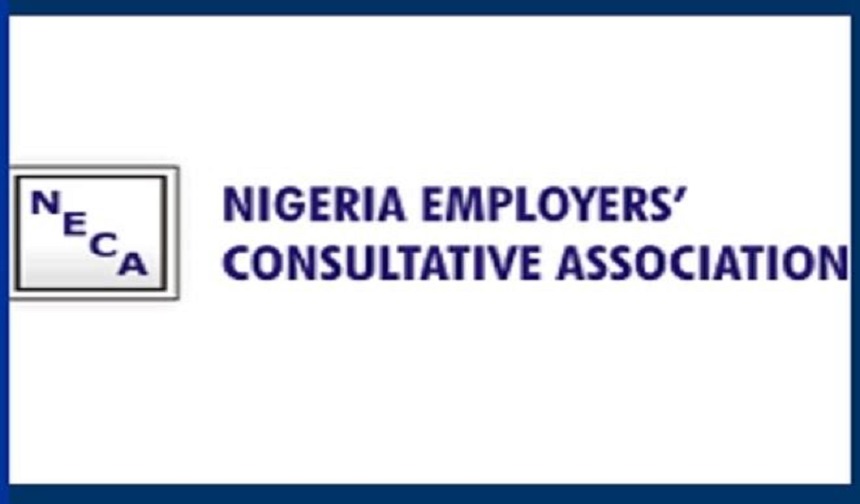Nigeria Employers’ Consultative Association, NECA, Thursday, said it was alien to have two minimum wage.
NECA’s declaration came against the backdrop of approval of two separate minimum wage figures, including N30,000 for federal workers and N27,000 for states and the private sector.
It, however, urged organized labour to lobby the National Assembly, NASS, for a minimumn wage of N30,000 across board, insisting there was nothing wrong with the “recommendation” of NSC.
Recall that while NSC approved N27, 000 as minimum wage for states and private sector employers, and N30,000 for federal government workers.
Speaking on the issue, Mr. Timothy Olawale, the Director-General of NECA, said: “As the title goes, what the Tripartite Committee on the National Minimum Wage submitted to the President upon conclusion of its assignment was a recommendation.
”Ordinarily, a recommendation is not cast in stone, but advisory to the President. The International Labour Organisation, ILO, Minimum Wage Setting Mechanism as domesticated in Nigeria, permits the National Economic Council and, of course, the National Council of State to take a further look at the recommendations and make their inputs to the President.
“While it is desirable that they accept and adopt the recommendations of the committee, it is also within their rights to make their own independent recommendations. The process never envisaged a situation of rubber stamping the recommendations of the Tripartite Committee.
”The National Minimum Wage process also gives the National Assembly the liberty to tinker with the figure in the interest of the nation and the citizens. Such tinkering could be an upward review of the recommendations, which would be desirable to the workers.
“The process of ultimately arriving at a new National Minimum Wage is all inclusive. It is part of the same process for the President to transmit a bill to the National Assembly on what he is convinced is appropriate as the National Minimum Wage.
”It is true that both the recommendations of the Tripartite Committee on national minimum wage of 2000 and 2011 were accepted and passed into law by government. This, however, does not mean it is wrong for the National Council of State to come up with a different figure as their recommendations to the President as they did at the end of their meeting.”
On the figure recommended by the NCS, Olawale said: “The figure recommended, which is N3,000 less than the recommended figure by the Tripartite Committee, comes with its own positives. The reduction will go a long way to lighten the burden of the micro, small and medium scale employers, which had been our concern hitherto. However, that exclusion threshold of 25 employees is expected to also take care of them.
“The final leg of the process is the President’s assent or withholding of same to the outcome of the exercise by our lawmakers. The major concern of the labour movement should now be the lobbying of the legislators, first to ensure they give speedy attention to the bill which has been transmitted to them and second, to lobby them on their desirable outcomes.
”This is not against the law or guiding principles of National Minimum Wage Setting Mechanism. It is alien and an aberration to have two national minimum wages. It is usually one National Minimum Wage and we hope this would be corrected by the National Assembly.”

